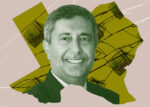As glass towers sprout up all over the city, Austin wants to make sure grass is sprouting somewhere too.
Last week, the Austin City Council voted to collect commercial parkland fees for the first time — a major victory for those pushing to boost funding for parks in the rapidly growing city. The council also voted to increase the parkland fee for residential development by 10 percent in the next city budget.
The vote had been postponed twice since the new fee structures were approved by the Austin Planning Commission on August 9 in an 8-2 vote. Mayor Steve Adler had said the council needed more time to “deliberate.”
Once the new fees go into effect, the Texas capital’s developer fees will far outpace other big cities in the state, which is known for its business-friendly practices, according to the Austin Business Journal. To ‘keep Austin weird’ however, the council made an exemption for arts-related commercial developments like galleries and live music venues, bolstering the community’s $7 billion tourism industry.
Read more



The higher residential fee, which will apply to new single-family and multifamily housing, is set to take effect at the start of the city’s next fiscal year in October, while the commercial fee will take effect January 1. The new commercial fees are expected to generate about $4 million in annual revenue for the parks department, plus more than $25 million from the residential fees.
In an August 10 memo, the parks department indicated that the commercial fee aims to help compensate for park use by the estimated 36 percent of the city’s workforce that lives outside Austin city limits. Last year the city spent close to $20 million acquiring 35 acres of new land for the parks system.
The residential fee was a bit more controversial as it pitted housing affordability against funding for parks. Last year, the council increased the fee by more than 20 percent. A proposal to double the fee was even on the table when the council debated the issue earlier this month.
“I hope we have struck a balance with this 10 percent,” said Council Member Paige Ellis. “I know there are folks who were hoping to stick to the numbers that were originally proposed, but I hope that we have found a compromise, knowing that it is our responsibility to know that we have access to park space but that we don’t create a situation where housing doesn’t get built.”
— Maddy Sperling
